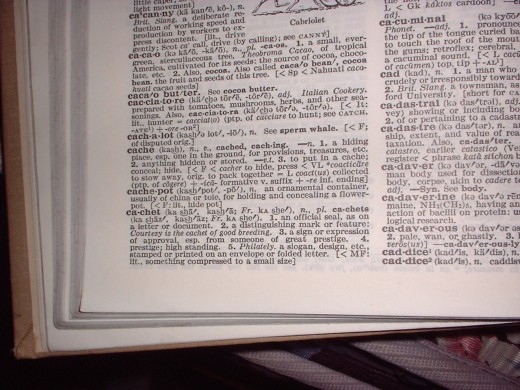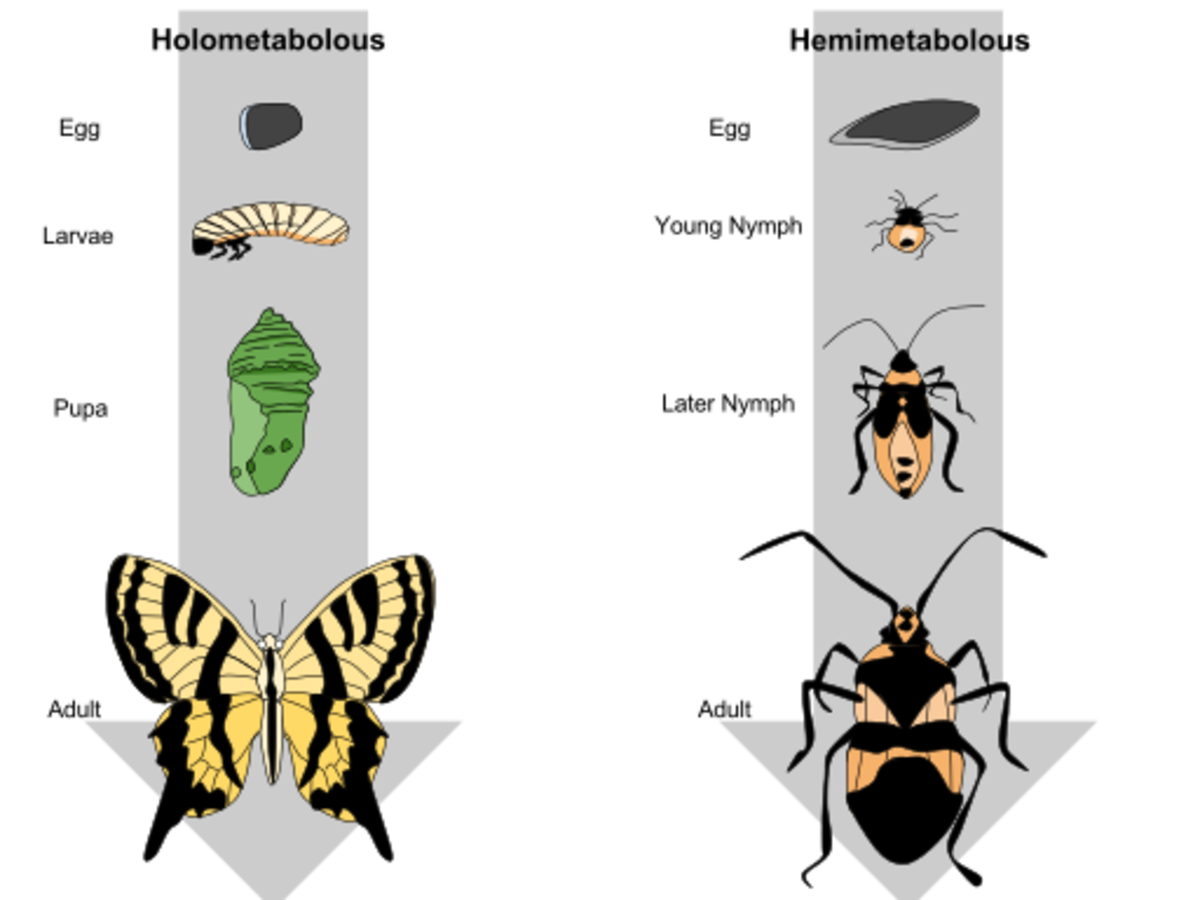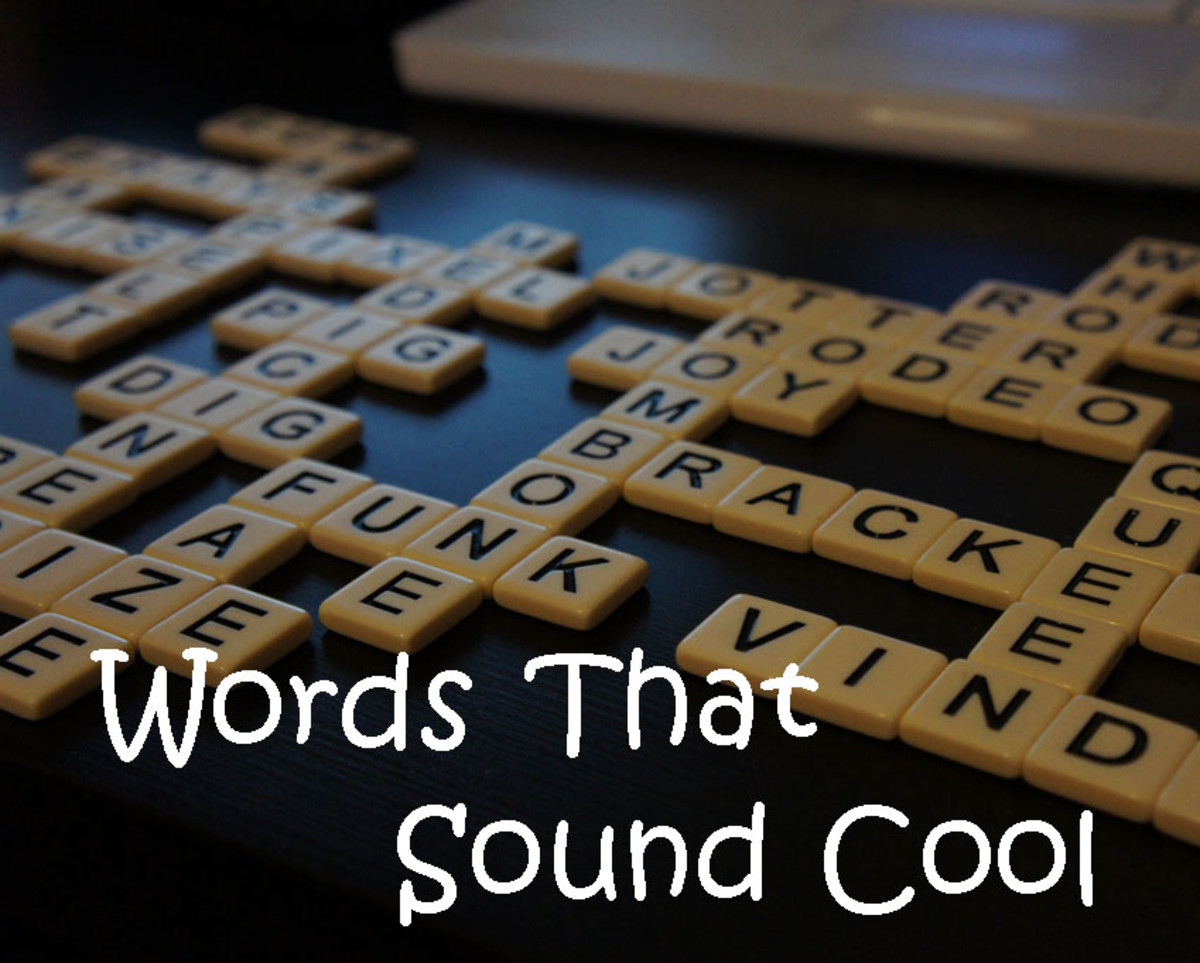Choose the Right Word: Tenet, Misled, Lesser
Do you think you know the difference between tenet and tenant? misled and mislead? lesser and lessor? Maybe you do, and maybe you don't! In some cases, the wrong choice appears only as a matter of misspelling. But in these three examples, the wrong spelling can actually convey the wrong meaning of the word.
Sometimes an internet writer may feel like singing,
"Words, words, words,
I'm so … sick of words;
it's words all day through
first from him, now from you…."
-- Eliza Doolittle's musical complaint about English vocabulary in "My Fair Lady." Does that ring a familiar bell with you or your readers? In this current Age of Information, we are bombarded with words from practically all sides and at every available moment. The ease and speed of connecting on the Internet means that our words often dash around the world before we have had much of a chance to double-check ourselves.
Even the best of writers will make mistakes in the areas of grammar, spelling, punctuation and word choice, and this can be especially true for writers in English where the spelling is so difficult and confusing. Here, following, is a small sample of problematic word choices. I have files full of them; more may be shared at another time.
Words, Words, Words

To the best of my knowledge, all the writers quoted here are native speakers of English, and all of the ones that I know here on HubPages are good writers and clear thinkers. Most of the errors are likely the result of posting quickly, without running a spell-check. But some may result from actual confusion about the meaning or spelling of a specific word.
Since many people who speak English as a second language may also read these words and may not recognize the mistakes, I believe it might be helpful to mention some of them.
Before anyone comments on what is certainly true and possibly obvious, I want to acknowledge that it is normally much easier to notice the mistakes in someone else's writing than in our own, because when we read our own work we already know what we intended to say or mean. Yes, I do make mistakes of my own, and in presenting these I am not trying to give myself a free pass.

Tenant vs. Tenet (word choice)
Actual example: "This tenant of 'unintended consequences' was a central point in a recent TV special."
Corrected version: "This tenet of 'unintended consequences' was a central point in a recent TV special."
A tenant is a person (or even a group of people) who rents and lives in or on land or property that belongs to someone else – a lessee, occupant, or inhabitant. The word can also be used as a verb.
The "-nt" ending is often seen in English words with Latin origins, to mean roughly the same as English "-ing" in the word's earliest form. In other words, "-nt" often signals that something is happening or that someone is doing something – for example: occupant; inhabitant; reagent; vagrant; delinquent; propellant.
Many of these "-nt" words are verbs and adjectives, as well as nouns (frequent, incipient, pursuant). That's not surprising, really. After all, they originated as a part of a verb form that was used as a description – that is to say, as an adjective.
[Please note that not every instance of "-nt" derives from a Latin verb; also, another form of many of these words uses the cluster "-nc-," "–nce," or "-ncy."]
Tenet comes from the same Latin verb as tenant does. Tenet, translated literally, means "he holds." In modern language, it refers to an opinion or belief that is held to be true (as in the words, "We hold these truths to be self-evident"). Other synonyms, besides belief, would include dogma and doctrine.

Missled and Mislead vs. Misled (Misspellings)
Actual examples: "We are being missled by both sides." // "I think you have been sadly mislead."
Corrected versions: "We are being misled by both sides." // "I think you have been sadly misled."
The past tense of lead (and therefore of mislead) seems to be misspelled more and more frequently, and that's not really surprising when we analyze the reasons. First of all, there's the problem that the spelling l-e-a-d actually represents two totally different pronunciations, and even more meanings and parts of speech.
When the "-ea-" receives the long -e- pronunciation (as in the word speech), lead means to conduct, show the way, influence, guide, etc. In this sense, it is used often as a verb: "Do you want to mislead both sides? Sadly, I think you are trying to mislead me!" But it can also be used as a noun – "Man 'o' War is trying to take the lead; Johnny Depp has the lead in the Pirates of the Caribbean movies" – and as an adjective: "In a team-teaching situation, it may help to name one person as the lead teacher."
But then, there's the other pronunciation of l-e-a-d with the short -e- pronunciation (as in the word speck). That refers to the heavy metal (symbol Pb from the Latin plumbum); and it can be used as a noun (Which weighs more – a pound of feathers or a pound of lead?) or as an adjective (It was Col. Mustard, in the billiard room, with a lead pipe).
So, there you have two different words, different meanings, different pronunciations – same spelling.
Some Help with English Words
The second problem is the similarity of its spelling with the word read . In the present tense, the words read and lead rhyme with each other, with both using a long -e- sound. It is the past tense and past participle that pose the problem. For both verbs (read and lead) the past tense and past participle rhyme with one another, using the short e sound, but they are spelled differently.
The correct spelling of the past tense of lead is led, and it sounds identical to the heavy metal noun lead! (Look it up, if you don't believe me.) That word (led) is the one that is being misspelled so often nowadays. More and more frequently, people are using the spellings "lead" and "mislead" (pronounced with short e), using forms that are analogous to the past tense of read. ("I read that book last year.") It does make sense; it's just not the spelling that has been accepted so far by so many people that it is considered to be "correct." We don't use "red" as the past tense of "read" – but perhaps in the history of words that spelling may have been used at some point. Or maybe not. There are times when I would like to change the spelling of past tense read, because it relies so strongly on context to be distinguished from the present tense.
In the previous examples of "mislead," it's difficult to tell whether the writer is confused about the actual word or about its spelling. But then, there's also the misspelling "missled." The double –s has no business being there. It gives the impression of a verb formed from the noun missile . LOL. Or perhaps some mistake involving a sled? Maybe it originated from seeing the two esses in the word misspell . In the latter case, one s belongs to the prefix mis-, and one s belongs to spell .
Lessor vs. Lesser (Misspelling)
Actual example: "People are voting for what they view as the lessor of two evils."
Corrected version: "People are voting for what they view as the lesser of two evils."
Lesser is an adjective, the comparative form of the word less; the superlative form is least. You might say: "This evil is less than that one; this is the lesser evil; this is the least evil of all the choices we face." In some situations, such as in the example, the noun is understood or temporarily suspended since it is repeated shortly afterwards. ("People are voting for what they view as the lesser evil of the two evils.")
In this instance, in the example given, lessor is a misspelling for the word lesser. But lessor actually does exist as a word in its own right. The lessor is the one who leases out property to a lessee (or perhaps to a tenant? lol – although there is probably a legal distinction between lessee and tenant which I do not know).
If we wanted to be really picky and obnoxious, we could interpret the original misspelled example as "People are voting for what they view as the landlord of two evils." We won't do that, because all of us make typos occasionally. It's just a good idea to check as often and as carefully as possible, because our printed words can take on a life of their own and an influence far beyond what we can imagine.







